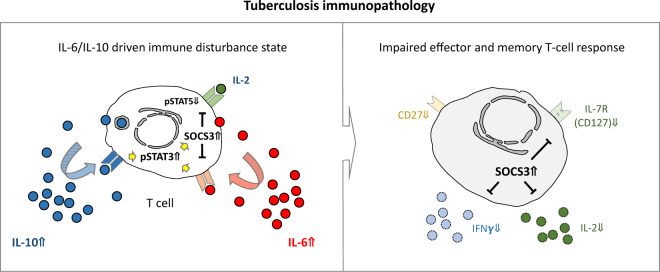Fig. 1.
IL-6/IL-10-driven immune disorder state in acute tuberculosis and implications for effector and memory T-cell responses. This schematic depiction summarizes our hypotheses based on descriptive tuberculosis patient studies performed in Kumasi and the Ashanti region of Ghana. Potential triggers (i.e., IL-6 and IL-10) of immune disorder and direct effects on T cells (i.e., constitutively high pSTAT3 and SOCS3 expression) are shown on the left, and the immune phenotype and functional consequences are shown on the right. Impaired effector and memory T cell responses in tuberculosis include diminished IL-2 and IFNγ secretion by memory/effector T cells, reduced expression of the costimulatory receptor CD27 and decreased sensitivity to IL-7. Aberrantly high expression of SOCS3 was shown to be involved in the regulation of IL-7R (CD127) expression and was associated with low effector cytokine secretion of T cells from tuberculosis patients

